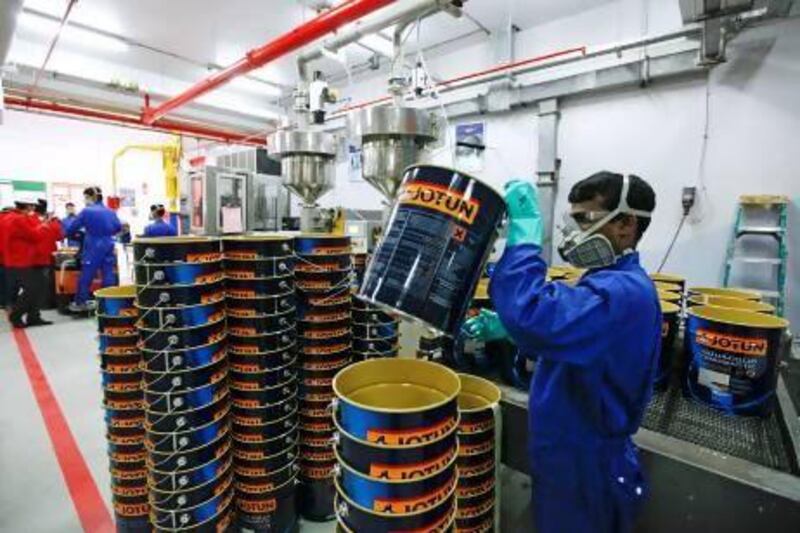ABU DHABI // Inspectors from the Environment Agency - Abu Dhabi (EAD) visited 676 industrial facilities in the capital last year.
The agency issues licences to companies and construction projects to ensure they operate safely and any environmental issues are avoided or mitigated.
"We have a schedule for routine inspections and we also do unscheduled visits," said Abeer Sajwani, an environmental engineer and one of EAD's 25 inspectors.
The team is responsible for checking everything from factories, chemical trading companies, sewage treatment plants and large-scale infrastructure and development projects in the emirate. Oil and gas facilities are not regulated by EAD.
Yesterday, Ms Sajwani and several of her colleagues visited Jotun Abu Dhabi. The paints manufacturer has a plant in Mussaffah with 175 employees and produced 25 million litres of paint last year.
During the visit, inspectors reviewed their latest report, carried out in December last year, to check some minor offences discovered on the previous visit had been addressed. They also reviewed the industrial licence and the plant's waste management process to ensure all waste is handled by an approved contractor.
The team then traced all the steps involved in processing raw materials into the finished product. During the inspection, Ms Sajwani checked whether staff were wearing appropriate protection equipment and if the plant's general and recyclable waste was segregated from hazardous materials that need special treatment.
A lot of attention was paid to how chemicals were stored as this is a major cause of accidents, said Ms Sajwani.
"Many facilities do not store their materials properly," she said.
Large infrastructure projects should be inspected two to three times a year, said Ms Sajwani. For industrial facilities, the visits should be more frequent because of the nature of the activities carried out there.
"In general, a facility has to be inspected at least three or four times a year," she said.
To help allocate its resources efficiently, the team carries out a risk assessment of each facility. If it is deemed to be high-risk, it is prioritised for more frequent inspections.
Ms Sajwani added EAD preferred to engage with companies, pointing out mistakes and allowing bosses the chance to correct them.
If any serious offences are reported and then repeated, the agency can temporarily cancel a company's trade licence until the issues are resolved.






